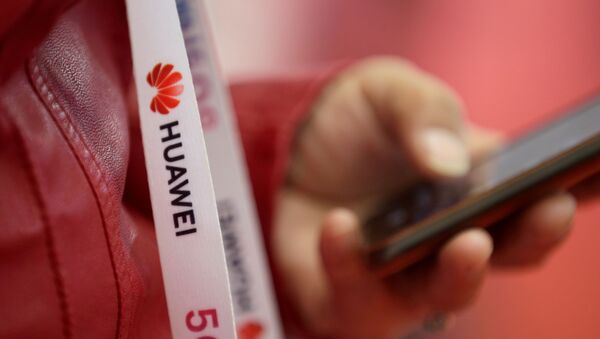The draft bill now awaits a vote in the US Senate. If adopted, the law will prevent the Federal Communications Commission (FCC) from providing funds to carriers to purchase equipment manufactured by the Chinese tech giant.
Benjamin Cavender, principal with the Shanghai-based China Market Research Group, shares his views on the anti-Huawei policies and the chances that the law will be approved by the Senate, among other issues.
Sputnik: Why do you think Washington is carrying out these anti-Huawei policies now? How does this legislation regarding Huawei conflict with the US-China trade deal and Trump's plan to get along with China?
Benjamin Cavender: Regardless of the trade war I think we are going to see the US continuing to protect US technology interests and to try and prevent Huawei and other Chinese technology leaders from gaining a stronger international foothold.
Additionally, China has started pushing the idea that government institutions not use US hardware or software by 2021 so this will encourage the US to keep a ban on Huawei in place.
Sputnik: What are the chances that this legislation will be approved by the Senate? How could it affect the further development of a deal between the US and China?
Benjamin Cavender: We are still in very preliminary stages with any deals and it's unclear as of yet what this initial deal will actually end up offering so it's not surprising to see the US continuing to take a hard line on Huawei.
If China truly gives concessions regarding IP protection or technology transfers we may see the US reexamine its position but I doubt we will see it do so before that.
Sputnik: How detrimental could it be to US microchip makers (like Micron Technology) that used to do business with Huawei? And how quickly and successfully can they find new markets if the bans come into force?
Benjamin Cavender: This is a tough situation for US chipmakers. The reality is that they may see one of their key markets dry up.
The Chinese perspective is that regardless of what happens with the trade war that they can no longer depend on a US supply of microchips and need to invest in domestic solutions.
Sputnik: In addition to introducing the digital tax set to hit US giants Google, Amazon and Facebook, France said it is not going to exclude Huawei from its next-generation 5G network. What do you think of this non-support for Washington's stances by France and how could it affect their relations?
Benjamin Cavender: Given Trump's world view I think we can expect to see the US take a hard line with France.
Sputnik: China's Ambassador to Germany Wu Ken has warned Berlin of the 'consequences' if it decides to ban Huawei 5G. China's response could impact the automotive industry - of the 28 million cars sold last year in China, Germany's auto manufacturers account for as much as a quarter. How much could China's counter-sanctions potentially harm the German economy?
Benjamin Cavender: Germany's economy is already in a slowdown so there is real concern that this would hurt German automakers in a time of need.
However, China is in a precarious position as consumer sentiment isn't great, so they may be loathe to further slow the auto market in China at the expense of German companies.

